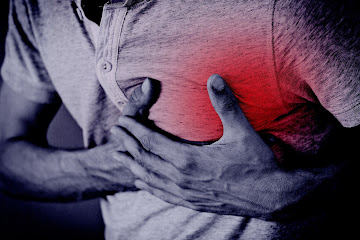Waking Up to Heart Failure: Why Nighttime Urination Might Be a Warning Sign
Do you wake up in the middle of the night to go to the bathroom? It may seem like a nuisance, but it could be a warning sign of heart failure. Heart failure is a serious condition that occurs when the heart is unable to pump enough blood to meet the body’s needs. One of the symptoms of heart failure is frequent urination at night, also known as heart failure urination. In this blog post, we will explore why nighttime urination can be an early warning sign of heart failure.
What is heart failure?
Heart failure is a condition where the heart can’t pump enough blood and oxygen to meet the body’s needs. It can cause a wide range of symptoms, including fatigue, shortness of breath, swelling in the legs and feet, and an irregular or rapid heartbeat. One of the more common signs of heart failure is nighttime urination.
When people with heart failure are unable to breathe normally at night, their bodies try to compensate by releasing fluids from their kidneys in the form of urine. This is known as nocturia, and it can be a sign that your heart isn’t working correctly.
Nighttime urination in heart failure is usually caused by fluid retention, which can lead to increased pressure on the bladder and increased urination. The amount of fluid retained can vary from person to person, but it can lead to frequent trips to the bathroom during the night.
It’s important to speak to your doctor if you’re experiencing nighttime urination in conjunction with other heart failure symptoms. Your doctor can help you find out what’s causing your symptoms and suggest treatments or lifestyle changes that can help improve your heart health.
What are the symptoms of heart failure?
Heart failure is a serious condition that can cause a wide range of symptoms. One of the most common and overlooked signs of heart failure is increased nighttime urination. When someone experiences heart failure, their body is no longer able to efficiently pump blood through the body, leading to an increase in fluid retention. This fluid buildup can cause frequent trips to the bathroom during the night.
If you are noticing an increase in nighttime urination, it is important to discuss this symptom with your doctor. While it can be a sign of other conditions, it can also be a warning sign of heart failure. It is important to get the necessary tests done to rule out any other medical conditions that could be causing your symptoms.
Heart failure urination is just one of the many signs of heart failure. Other symptoms include extreme fatigue, swollen ankles and legs, increased heart rate, shortness of breath, and chest pain. If you are experiencing any of these symptoms, contact your doctor for further evaluation. Early detection and treatment can help to prevent the progression of heart failure and ultimately save your life.
How can you reduce your risk of heart failure?
If you are waking up to urinate more frequently at night, it could be an indicator of heart failure. Heart failure is a chronic condition that affects the heart’s ability to pump blood. As the heart weakens, it can cause fluid to build up in the body, resulting in nighttime urination. This can happen when there is too much strain on the heart or when the heart muscle is not strong enough to properly pump blood.
Although it is normal to wake up to go to the bathroom once during the night, if you find yourself making more frequent trips to the bathroom, it could be a sign of heart failure. This symptom should be taken seriously and discussed with your doctor as soon as possible.
Fortunately, there are steps you can take to reduce your risk of heart failure. Eating a healthy diet and exercising regularly are two key components for reducing your risk. Additionally, maintaining a healthy weight, reducing stress levels, and quitting smoking can help you stay healthy and reduce your chances of developing heart failure. Finally, monitoring your blood pressure and cholesterol levels can help alert you to any changes that may require medical attention.
If you suspect that you may have heart failure, it’s important to seek professional medical advice right away. Your doctor can provide additional lifestyle advice and treatments to reduce your risk of this serious condition. With proper diagnosis and treatment, heart failure can be managed to prevent further complications.
Cover Topics:
